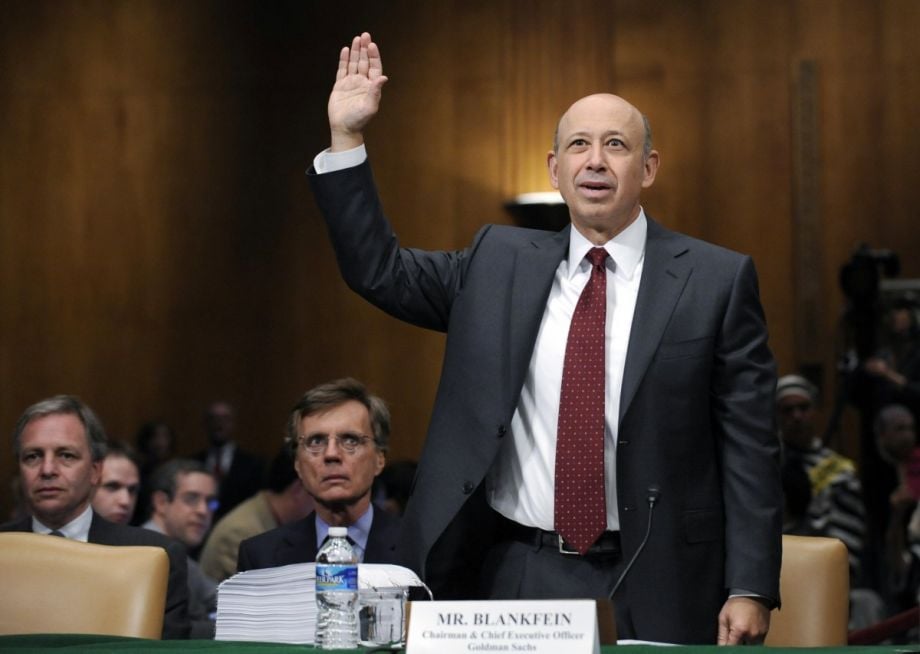Social impact bonds sound pretty great. What could be wrong with additional funds to help the poor, the homeless, the formerly imprisoned? Governments are cutting back, but need is greater than ever. So let Wall Street provide (while netting a fine payout in the process)? Rhode Island’s largest public employee union, AFSCME Council 94, isn’t buying that solution.
As Esha Chhabra writes in Next City’s Forefront this week, social impact bonds are whipping up a lot excitement as a means to incentivize policy experiments that promise long-term benefits, not instant savings, especially in programs that benefit politically unpopular groups like prisoners, the homeless or recovering drug addicts. Chhabra writes:
[SIBs] could rewrite the rules of the game when it comes to government-funded social services … giv[ing] the corporate world a financial stake in the well-being of the most vulnerable citizens. Perhaps most crucially, they provide the government a cushion against financial losses, allowing normally hamstrung taxpayer-funded agencies to take risks and innovate.
The concept is championed by Goldman Sachs, Michael Bloomberg, and a variety of other charitable and financial interests. Social impact bonds are being sold as a market-based alternative to the traditional efforts of the cash-strapped safety net, which is increasingly tattered after decades of budget cuts. “At a time when government doesn’t have the wherewithal to come up with that one dollar, and as consequence will have to come up with four dollars, I’ll come up with the one dollar, and we’ll split the extra three dollars,” explained Lloyd Blankfein, CEO of Goldman Sachs, during an event held by the Center for American Progress.
Opposition to social impact bonds is muted (few people feel qualified to debate financial instruments), but the underlying austerity logic of Blankfein’s proposition is disquieting. There will never be more public money for social goods, SIB boosters imply — and perhaps government would simply waste it if there were — so get funds in a manner profitable to Wall Street instead.
There is a reason governments have lost the ability to adequately fund social services and public assistance programs. Tax revenues are low because conservative political movements, funded by wealthy donors, have waged a successful campaign against taxation of any kind. Much of the vast wealth of corporate America remains untouched, and individual income taxes are at their lowest levels in decades. The feds, the states and municipalities hand out tax breaks on the flimsiest of premises. Goldman Sachs itself received $250 million worth of federal low interest, tax-exempt bonds to build its headquarters in Manhattan and a further $25 million in job creation cash grants.
That’s partly why Rhode Island’s AFSCME Council 94 opposed a recent bill in the legislature that would have introduced SIBs to the Ocean State. “[SIB supporters] have bought into the argument that with constrained budgets and constrained revenues, this would provide another source of revenue for noble and legitimate causes,” says Jim Cenerini, legislative affairs director and political action coordinator for Council 94. “Our skepticism comes from the fact that the impetus for this was created by a large Wall Street corporation that obviously has something to gain, ideologically and financially, from the implementation of these bonds. It seems wrong that already very wealthy individuals should be able to make money off of reducing recidivism.”
The Rhode Island bill would have allowed a $25 million foray into social impact bonds over five years, along with a simultaneous commission to study their effect. No specific programs were earmarked in the bill’s language, although the Rhode Island Coalition for the Homeless advocated for it during a hearing. (“We can’t go to the General Assembly and say, ‘We know you’re giving us $2.8 million, but what we really need is $25 million,” the non-profit’s executive director noted.) The bill passed through a Senate committee, but never saw a larger vote.
Social impact bonds are a relatively new phenomenon, and their track record is still unproven, but they are very much of a piece with other market-oriented interventions, popular among technocratic governments of the center-left and center-right, that are meant to nudge the behaviors of targeted groups. Former mayor Michael Bloomberg’s experiments with conditional cash transfers are another example: Eligible families were given monetary support if they reached specified educational or health benchmarks. The bipartisan education reform agenda follows similar contours, as specific states, school districts and teachers are rewarded, or punished, depending on heavily monitored, high stakes outcomes.
These systems can have their benefits, but as MSNBC host Chris Hayes argued in his 2012 book Twilight of the Elites, they come with their own baggage. “One of the outgrowths of a system of incredibly intense emphasis on performance, with finely granulated judgments of who’s better than whom, is that you produce real intense incentives for fraud, for cheating,” as Hayes put it in a 2012 interview.
With the Obama White House’s support for “pay for success” programs, the momentum is clearly behind SIBs. These policies have gained traction across America, from the South to the mountain states. Winning support for a venture backed by Goldman Sachs is an easier lift than rolling back a nearly 40-year consensus behind low taxes and weakened social supports. But that doesn’t mean that’s the better option. Social impact bonds should be recognized for what they are: a very limited response to the dizzying array of challenges facing America’s most vulnerable citizens.
The Equity Factor is made possible with the support of the Surdna Foundation.












